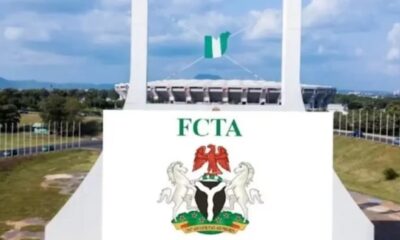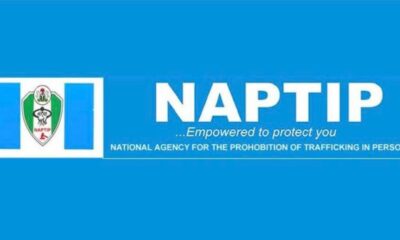Health care
UNICEF: 80, 000 Malnourished Children In Nigeria Riskosing Aid
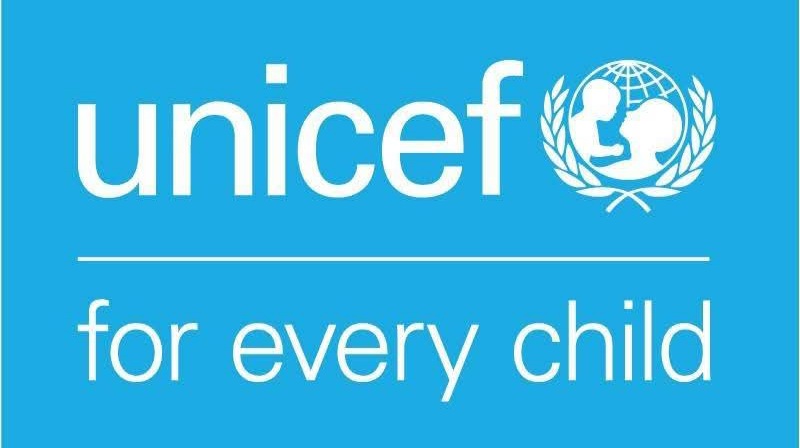
UNICEF: 80, 000 Malnourished Children In Nigeria Riskosing Aid
UNICEF: 80, 000 malnourished children in Nigeria risk losing aid. Lack of funding exacerbated by President Donald Trump administration’s cuts to foreign aid will affect the supply of lifesaving food to treat 80, 000 children suffering from acute forms of malnutrition in Nigeria within the next two months, the United Nations Children’s Agency said on Friday.
According to the organisation, a total of 1.3 million children under five suffering from severe acute malnutrition risk losing access to lifesaving support this year in Ethiopia and Nigeria.
“Without new funding, we will run out of our supply chain of Ready-to-Use-Therapeutic-Food by May, and that means that 70,000 children in Ethiopia that depend on this type of treatment cannot be served,” Kitty Van der Heijden, UNICEF’s deputy executive director, told reporters in Geneva via video link from Abuja on Friday.
“Interruption to continuous treatment is life-threatening.”
In Nigeria, UNICEF said it may run out of supplies to feed 80,000 malnourished children as soon as the end of this month. Van der Heijden described recently being in a hospital in Maiduguri with a child who was so malnourished that her skin was falling off.
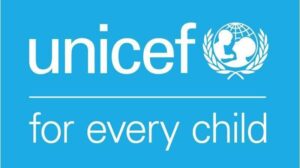
UNICEF
Reuters reports that international donors have in recent years reduced contributions to UN agencies, including UNICEF. Its funding woes were accelerated when the United States, its top donor, imposed a 90-day pause on all U.S. foreign aid on the first day of President Donald Trump’s return to the White House in January.
That action, and ensuing orders halting many programmes of the U.S. Agency for International Development worldwide, have jeopardised the delivery of lifesaving food and medical aid, throwing into chaos global humanitarian relief efforts.
“This funding crisis will become a child survival crisis,” warned Van der Heijden, adding that the sudden nature of the cuts did not give the agency the ability to mitigate the risks.
Abuja
FCTA Confirms Antivenom Stock, Warns Negligent Hospitals, Gives Emergency Lines

FCTA Confirms Antivenom Stock, Warns Negligent Hospitals, Gives Emergency Lines
FCTA confirms antivenom stock, warns negligent hospitals, gives emergency lines. The FCTA said all public hFCTA confirms antivenom stock, warns negligent hospitals, gives emergency linesospitals have sufficient antivenom after singer Ifunanya Nwangene’s death at FMC Jabi. Dr. Adedolapo Fasawe warned facilities to follow protocols or face sanctions, stressing that early treatment is critical.

FCTA
The territory has added 12 ambulances, improved ICUs, and centralized antivenom storage.
Residents are urged to use emergency lines 090157892931 or 090157892932.
Economy
NARD: Resident Doctors Give FG Four Weeks To Meet Demands

NARD: Resident Doctors Give FG Four Weeks To Meet Demands
NARD: Resident doctors give FG four weeks to meet demands. The Nigerian Association of Resident Doctors (NARD) has issued a four-week ultimatum to the federal government to fully implement outstanding agreements on salaries, allowances and welfare.
The decision was taken at the end of the association’s national executive council (NEC) meeting and scientific conference, held from January 25 to 29, 2026, in Jos, Plateau state.
In a communiqué signed by Mohammad Suleiman, NARD president, the association expressed appreciation to President Bola Tinubu, Vice-President Kashim Shettima, and other key stakeholders for their roles in ongoing engagements.
The NEC acknowledged the reinstatement of disengaged doctors at the Federal Teaching Hospital, Lokoja, and commended the intervention of the ministry of labour and employment and the integrated payroll and personnel information system (IPPIS) on the outstanding 25 and 35 percent consolidated medical salary structure (CONMESS) and accoutrement allowance arrears.
NARD also noted that promotion and salary arrears had been forwarded to relevant authorities, with assurances from the minister of finance that payments would be expedited.
However, the association expressed concern over delays in circulating the directive affirming CONMESS 3 as the approved entry level for medical doctors.
It also decried the non-payment of the professional allowance provided for in the 2026 Appropriation Act and persistent salary arrears across several health institutions.
The association warned of worsening industrial relations at the Benue state University Teaching Hospital and demanded urgent action, alongside calls for improved welfare, timely release of training funds and renewed investment in health infrastructure nationwide.
“The NEC demands the expeditious clearance of the outstanding 25%/35% CONMESS arrears and accoutrement allowance arrears within the assured two weeks, as committed by the Integrated Payroll and Personnel Information System (IPPIS), following the intervention of the Federal Ministry of Labour and Employment,” the communique reads.

Doctors
“The NEC demands the prompt payment of all promotion arrears already forwarded to the appropriate authorities, in line with the assurances of the Honourable Minister of Finance for payment within the next four (4) weeks.
“The NEC demands the expedited payment of all outstanding salary arrears owed to specific centres, which have been duly forwarded to the Federal Ministry of Finance for processing, within the assured four (4) week timeline.
“After exhaustive deliberations and in recognition of the progress made by the Federal Government towards addressing the legitimate demands of Nigerian resident doctors, the NEC has resolved to extend the suspension of the Total Indefinite Comprehensive Strike (TICS) for a further period of four (4) weeks as a further goodwill gesture, to allow for the full implementation of the Association’s demands.”
The association had earlier suspended its plan to commence another strike on January 12.
The doctors said this was done after firm commitments from critical stakeholders following Shettima’s intervention.
Economy
Ododo Government Unveils Construction Of Model Veterinary Hospital
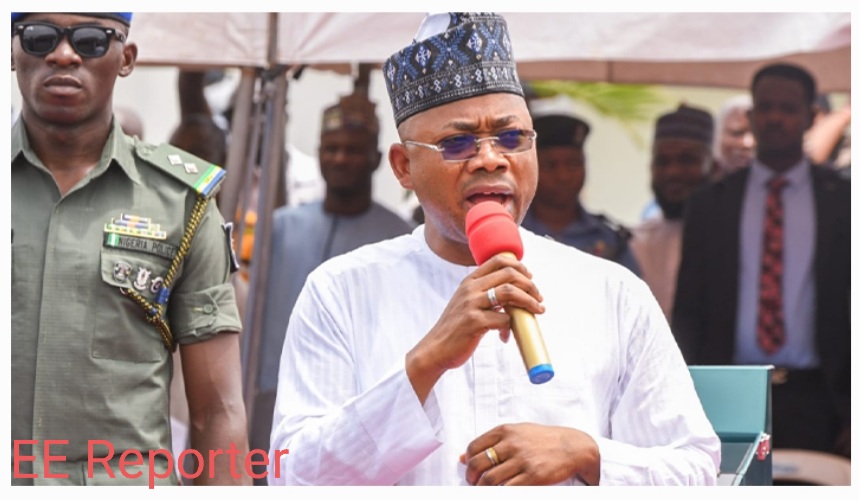
Ododo Government Unveils Construction Of Model Veterinary Hospital
Ododo government unveils construction of model veterinary hospital. Kogi’s commissioner for livestock development, Olufemi Bolarin, handed over the site to the contractor in Osara, Adavi.
The Kogi government has advanced the construction of a model veterinary hospital, a flagship project under the Livestock Productivity and Resilience Support project.
The facility, to be built at the Cattle Value Cluster Osara, Adavi LGA, aims to strengthen animal health systems, improve livestock productivity, and enhance food safety and security.
Kogi’s commissioner for livestock development, Olufemi Bolarin, handed over the site to the contractor in Osara, Adavi.
Mr Bolarin described the project as a strategic investment in improved animal health service delivery, disease prevention, and control to improve livestock productivity in Kogi.
He noted that the project would revolutionise the state’s livestock sector by providing modern veterinary services, enhancing disease surveillance, and promoting the One Health approach.
He thanked the federal government, the World Bank, and the national L-PRES office for their support, saying the project aligns with the state’s developmental agenda and livestock transformation roadmap.
Mr Bolarin praised Governor Ahmed Ododo for his visionary leadership to transform the livestock sector into a modern, productive and resilient contributor to food security, public health and economic development.
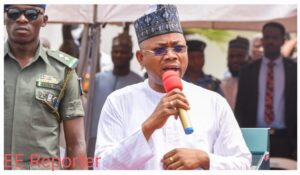
Ahmed Ododo
The commissioner urged contractors to comply with approved designs, timelines, and quality specifications.
The project coordinator, Abdulkabir Otaru, said the hospital would address challenges faced by livestock farmers, including limited access to quality veterinary services and inadequate disease surveillance.
Mr Otaru emphasised that the facility will provide modern veterinary clinical services, disease diagnosis, treatment, and surveillance, and support improved animal disease surveillance and response capacity.
He commended the governor for creating an enabling environment for the project and for promptly paying the State counterpart funding for the implementation of the L-PRES project in Kogi.
-
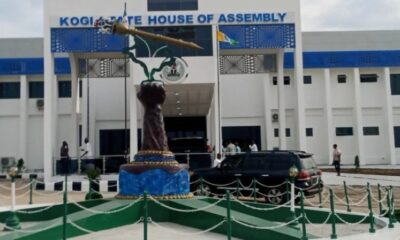
 Crime9 months ago
Crime9 months agoKogi Assembly Considers Law To Regulate Rent, Establish Control Board: Tenancy Law
-

 News10 months ago
News10 months agoAtiku Reveals Why He Failed To Pick Wike As Running Mate In 2023
-

 Crime12 months ago
Crime12 months agoFederal High Court Jails 2 For Vandalizing Transformer, Telecom Mast In Kogi
-

 Akwa Ibom1 year ago
Akwa Ibom1 year agoThe Apostolic Church Gets New Territorial Chairman, Exco
-
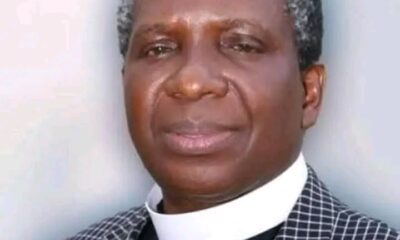
 News12 months ago
News12 months agoThe Apostolic Church Gets New National President, Executive
-
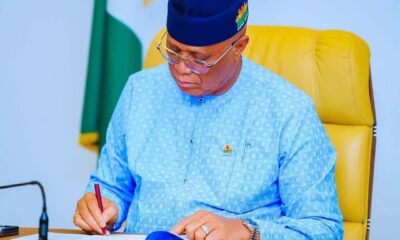
 Akwa Ibom1 year ago
Akwa Ibom1 year agoUmo Eno Commences Payment Of 80,000 Naira Minimum Wage With Arrears
-

 News11 months ago
News11 months agoSenator Natasha Returns To Senate With Husband Amid Seat Dispute
-

 Economy9 months ago
Economy9 months agoKiyosaki: Is Tinubu’s Government Afraid Of Ibrahim Traore?







